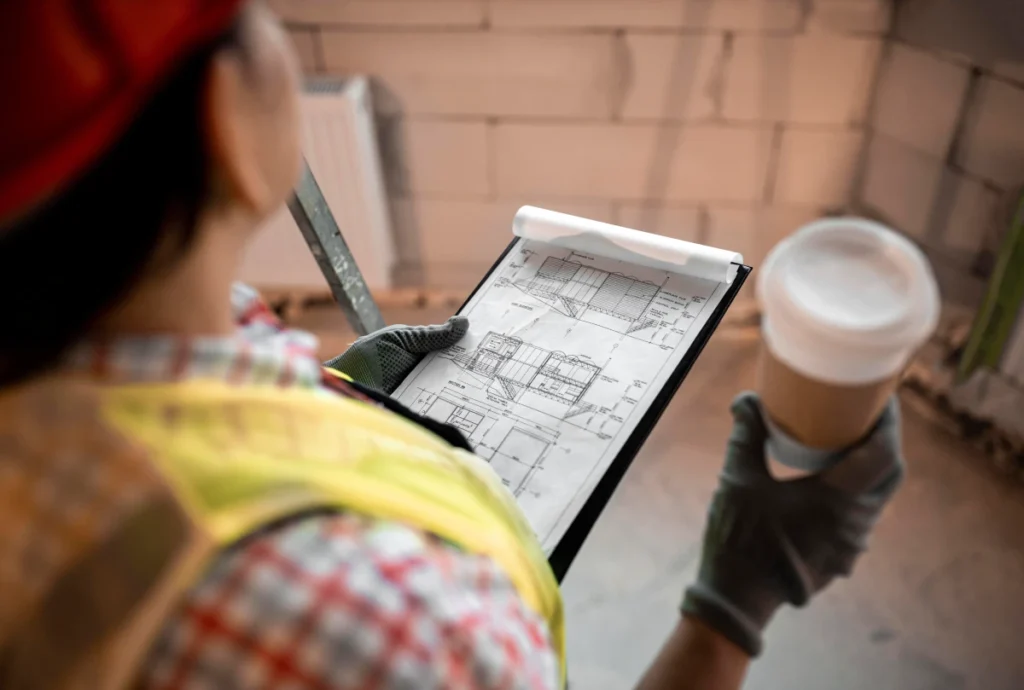Renovating your home can be an exciting experience, but it also entails significant responsibilities, especially in a city like Barcelona, where urban planning regulations are strict.
Complying with these regulations not only ensures the safety and quality of the work but also avoids fines and legal issues. Here’s a complete guide to help you carry out your renovation smoothly and within the law.

1. Know the Necessary Licenses and Permits
The first step to avoid penalties is to identify whether your project requires permits. In Barcelona, renovations are divided into two main categories:
Minor Works
These include low-impact tasks such as painting, changing floors, or updating electrical or plumbing installations. While they generally don’t require a formal permit, it’s important to notify the City Council or your neighbors’ association to prevent misunderstandings. In some cases, prior notice of work is required.
Major Works
Major works affect the structure of the property or significantly alter its layout. Examples include extensions, demolitions, or the installation of structural elements like columns or beams.
For such projects, it is mandatory to present a technical project prepared by an architect or technical architect and apply for a major works permit.
Consequences of Not Having Permits
Carrying out renovations without the proper permits can result in significant financial penalties. Fines for non-compliance can exceed €10,000, depending on the severity of the violation and the regulations in force in Barcelona.
2. Familiarize Yourself with Local Noise Regulations
Barcelona has strict regulations to control noise generated during renovations. These rules aim to balance the need for construction with residents’ right to rest.
Permitted Hours: From Monday to Friday, noisy work is allowed between 8:00 AM and 8:00 PM. On weekends and public holidays, the hours may be more restricted.
Permitted Decibel Levels: There is a maximum noise level that machinery and tools can produce. Exceeding this limit may lead to complaints and fines.
Complying with these regulations not only avoids penalties but also helps maintain a good relationship with your neighbors.
3. Communicate Your Intentions to the Community of Neighbors
When you live in a building or residential complex, renovations can impact common areas such as staircases, courtyards, or elevators. To avoid conflicts, it is advisable to:
Inform neighbors about the nature and duration of the work.
Obtain approval from the homeowners’ association if the renovations affect common elements.
Establish prior agreements for the use of common areas during the renovations.
Clear communication not only helps prevent complaints but also fosters an atmosphere of cooperation and understanding.
4. Hire Qualified Professionals
In Barcelona, it is mandatory to employ registered professionals to ensure that the work complies with technical and safety regulations. Some reasons to hire experts include:
Well-Planned Projects: Certified architects and contractors have the expertise to avoid costly mistakes or legal non-compliance.
Legal Guarantees: In case of municipal inspections, having a project prepared by professionals protects you from potential fines.
Timely Completion and Quality: A qualified team ensures efficient, high-quality work.
5. Proper Waste Management
During a renovation, waste such as debris, leftover materials, and packaging is generated. Improper handling of this waste can result in fines for violating environmental regulations. Key guidelines include:
Hire Authorized Containers: Waste must be stored in proper containers and managed by certified companies.
Avoid Obstructions in Public Spaces: If you need to place a container on the street, you must apply for a special permit from the City Council.
Recycle Materials: Whenever possible, opt for recycling materials to minimize environmental impact.
6. Consider Workplace Safety
Safety is a priority in any renovation. According to Spanish regulations, property owners are responsible for ensuring that workers adhere to established safety measures. Recommendations include:
Ensure workers use personal protective equipment (PPE).
Verify that the contractor complies with occupational risk prevention regulations.
Supervise the placement of warning signs and appropriate protections in work areas.
7. Respect for Architectural Heritage
In Barcelona, many buildings are protected for their historical or architectural value. If your home is classified as heritage, renovations must comply with specific regulations limiting structural or aesthetic changes.
Consult a technical architect to ensure adherence to these rules.
8. Additional Tips to Avoid Penalties
Always check municipal ordinances before starting any renovation.
Conduct regular inspections to verify that the work progresses as planned.
Keep all documents related to permits and licenses for submission during inspections.
Renovating your home is an excellent opportunity to improve your living space, but it also requires compliance with specific rules and regulations. By following these tips, you can avoid penalties and successfully complete your project.
If you’re considering a home renovation and are looking for a reliable company, SOLERA REFORMAS is an excellent choice. With extensive experience in the industry and a highly qualified team of professionals, they offer personalized solutions tailored to each client’s needs.
They also handle all the necessary permits and licenses, ensuring your project complies with current legal regulations. Their commitment to quality and design guarantees impeccable results that will transform your home.




